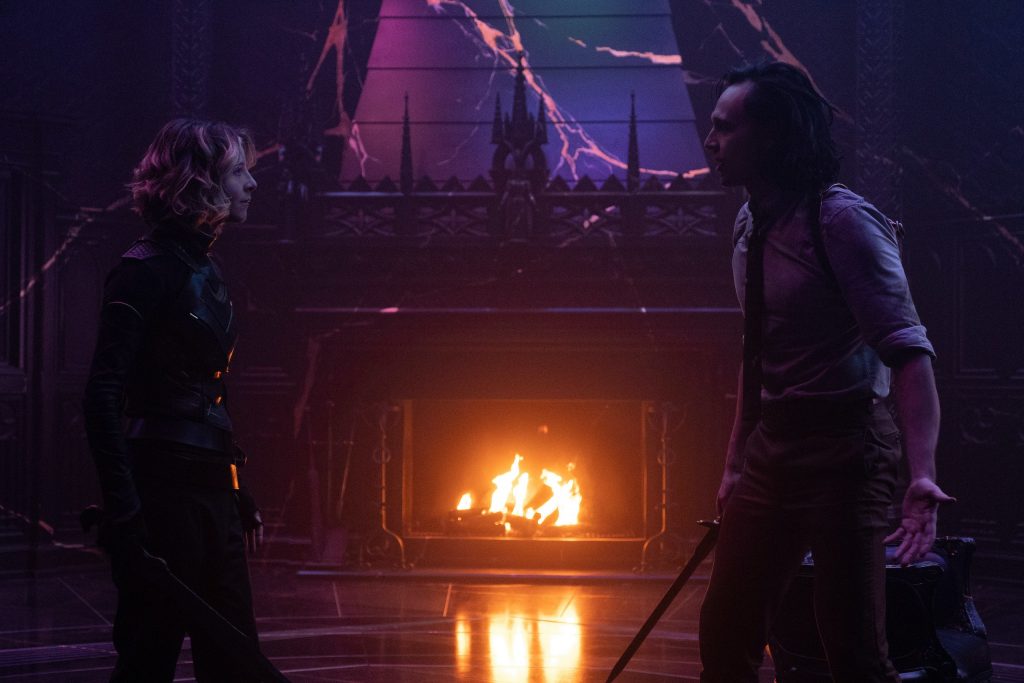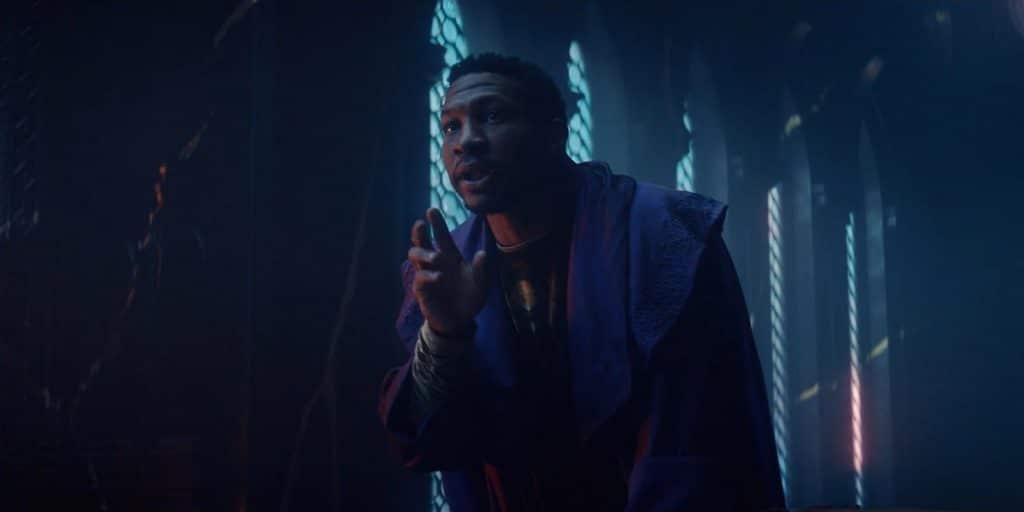Read also:
How to Watch FX Live Without CableHow To Watch AMC Without CableHow to Watch ABC Without CableHow to Watch Paramount Network Without CableThe Disney+ series concludes (for now) on a mindbending cliffhanger that asks: what do you do when you no longer have glorious purpose?
Blaise Pascal invented a philosophical concept that came to be known as Pascal’s Wager. He presented a pragmatic argument for belief in God. Pascal held that if you believed in the Lord and He did, in fact, exist, you would gain the infinite rewards of Heaven. And if He turned out to be a myth, well then you’ve lost nothing, or comparatively little. If you don’t believe, though, and the Creator is real, you risk the infinite horrors of Hell, the prospect of which would, in Pascal’s estimation, outweigh any meager reward disbelief might grant you on this mortal coil.
Now there are four centuries’ worth of counterarguments to this famous proposition. So if you’ll pardon the expression, don’t take it as gospel. But it’s the same type of argument He Who Remains (Jonathan Majors) makes to Loki (Tom Hiddleston) and Sylvie (Sophia Di Martino) in Loki’s season finale.
“Believe me and gain all the power and glory you’ve always wanted, or don’t and face down the barrel of a cataclysm.” Our heroes (or antiheroes) must weigh that proposition and decide whether two beings innately prone to betrayal and mistrust should take this odd man’s pronouncements at face value or, instead, assume he’s lying and risk multiversal catastrophe to return free will to the masses.
I don’t know what I would choose. There’s been enough lies and, frankly, downright weird shit in the last six episodes of Loki that I’d be ready to believe either proposition. This enigmatic, calm-but-deranged figure could be telling the truth in his tale of inter-dimensional warfare quelled into harmony. Or he could be yet another huckster, trying to preserve the status quo because it suits him, and because agitators like our protagonists have rapidly become flies in the ointment.

The dilemma’s enough to divide the Lokis. Sylvie’s ready to kill He Who Remains, tired of other people controlling her destiny and apt to believe her counterpart has succumbed to this Oz-like figure’s promises of grandeur and a throne. Loki’s ready to trust him, though, willing to leave the system he’s risked everything to overthrow in place for a simple reason — to keep someone he loves safe. Do you unravel the lie that keeps the world stable and relatively peaceful, or do you slay the liar, disregard his tall tales, and let the chips fall where they may?
Disney’s announcements of future films with subtitles like “The Multiverse of Madness” and “Quantumania” tip the MCU’s hand here. But the ultimate choice at play — not to mention the grand debate and willingness to sacrifice oneself rather than betray another it provokes — have meaning despite the fait accompli. The finale of Loki’s first season is essentially one big conversation with God or the Devil (or maybe just a showrunner personified), and it’s nevertheless a compelling conversation.
It should be said, after fireworks-filled swan songs for the likes of WandaVision and The Falcon and the Winter Soldier, it’s nice to have an MCU finale that is, outside of some succinct swordplay, all talk. The series’ rollicking action set pieces arrived last week, giving us a climactic battle which cleared the decks for the major characters to simply consider their actions here. This is a time to listen to the Devil’s pitch, rather than blow things up shortly before reflecting on them.
Maybe it’s easier to achieve that when, thanks to a mid-credits surprise, Loki is the first MCU show to announce a second season. “For All Time. Always.”, then, is merely a mile marker along the path for Loki, not the end of the road. More ground to cover gives the show room to center its finale on a decision and a discussion, rather than on fist-fights and fireballs.
That discussion is led by Kang (Can we call him Kang? They don’t call him Kang. But it’s definitely Kang.), a timeline-hopping scientist and conqueror who spins a loquacious tale of forging multiversal peace among his own warring variants. The character’s debut is an odd one. Jonathan Majors (of Lovecraft Country fame) makes big choices as an actor, which is always admirable, but there’s something off about him here.
More ground to cover gives the show room to center its finale on a decision and a discussion, rather than on fist-fights and fireballs.
Then again, maybe the approach works under the circumstances. This variant of Kang has “lived a million lifetimes.” He’s tired. He’s at peace with the dual prospects of two gods of mischief running the show or the rigors of inter-dimensional combat beginning anew. He should be weird! Too often these godlike beings fall into the same clichés of stentorian-voiced automatons (something the Timekeepers’ presence low-key spoofs), and He Who Remains certainly does not.
It’s refreshing, then, to have the man behind the curtain turn out to be some unreadable weirdo, fidgeting in a big empty castle, and reacting with awkward bemusement to each new development. It can be tricky to connect with the performance in the moment — with small hints of “Jesse Eisenberg as Lex Luthor” quirkiness — but the acting choices align with the strangeness of the character. And the more you see Kang through that lens, the more there is to appreciate.
We also see confrontations and teases from the rest of the cast. Hunter B-15 (Wunmi Moskau) spreads word of the TVA’s lies to her comrades. She puts the proof right in front of their faces, showing that Renslayer herself is a variant, and by extension, so’s everyone else in their line of work. It’s a smart, succinct way to show the fire spreading.

Better yet is the confrontation between Mobius (Owen Wilson) and Renslayer (Gugu Mbatha-Raw). Just as Sylvie and Loki take differing approaches to the choice Kang lays out for them, so do their TVA counterparts when forced to decide how to face the reality that the principles they’d devoted their lives to were a lie. Mobius already declared his intentions to burn it all down. But Renslayer stays firm, reasoning that while there may be more to the story than she thought. With an assist from Miss Minutes (Tara Strong), she decides there must be a reason for how things are, a justification to maintain the status quo, even if it’s not the one they thought.
It speaks to the essential question Loki has been asking from the beginning. What do you do when your purpose is taken away from you in an instant, when the person you thought you were is totally upended? Renslayer clings to the wreckage, hoping the tides will push her where she needs to go. Mobius aims to bring the truth to the people, to stop what he once unquestioningly supported. Sylvie breaks in the same direction, championing free will and a life unbound to a dictator, benevolent or not, no matter what transdimensional boogiemen he conjures up in warning.
And Loki finally finds his purpose — to save himself. Only for once, that means saving someone else. There’s a meta quality to Loki’s season finale, with dialogue winking at the idea that this is all a game, or an effort to rewrite this grand story. You can even read it as a commentary on Marvel Studios’ quality control. The powers that be have maintained this cinematic universe with an air of consistency, so that dozens of hours of entertainment can feel reasonably cohesive and connected. In a post-Endgame world, with gutsier and more out there concepts at play, this finale could be the MCU’s declaration that things are about to get wilder and woolier.
But for Loki, who tries to stave off that all-but inevitable unraveling of the multiverse, it’s about holding onto something — a bond to someone outside of himself that’s worth holding the all of existence in thrall for, so long as it means keeping her near. Since his abduction and deconstruction by the TVA, Loki has found his new glorious purpose, and it’s Sylvie. Whatever infinite pleasures and punishments this would-be god presents to him, they can’t outweigh the presence of the person who changed his life. In the end, he bets on her. He believes in her. Let’s hope he doesn’t lose it all anyway.
The full season of Loki is now playing on Disney+.